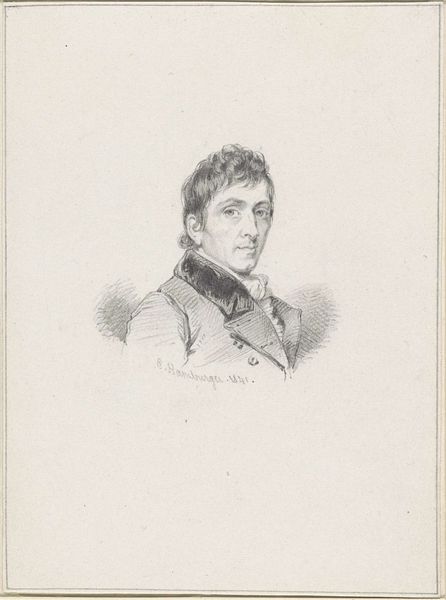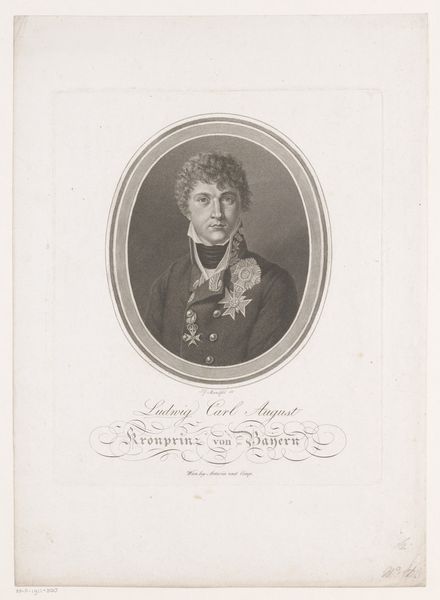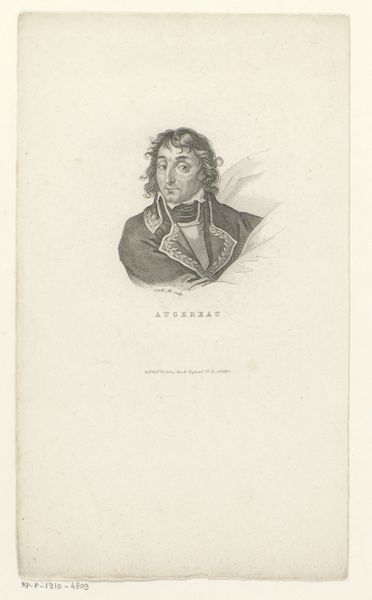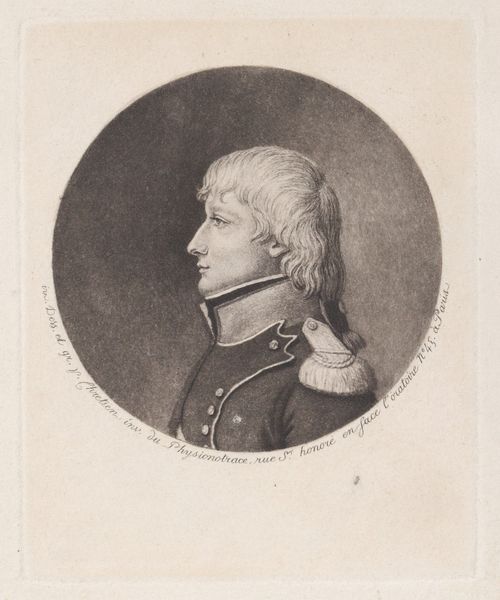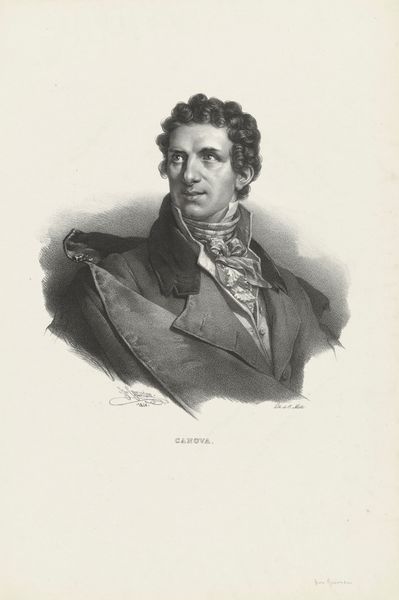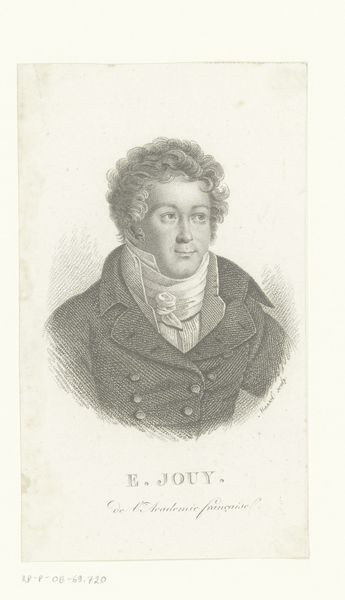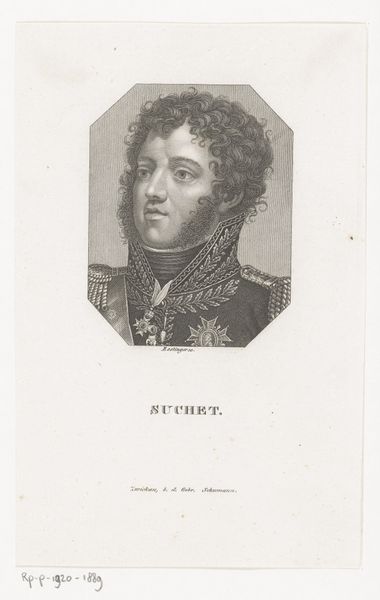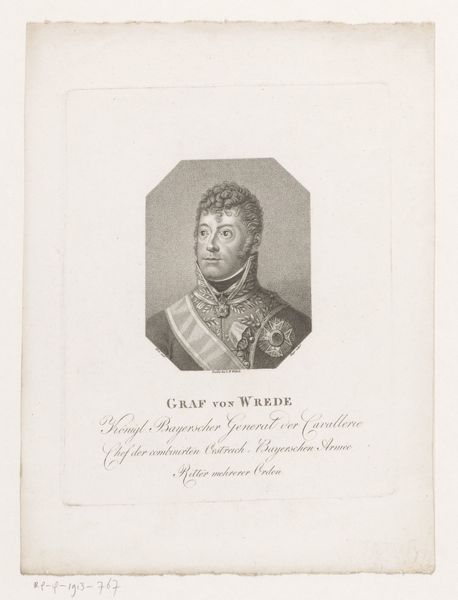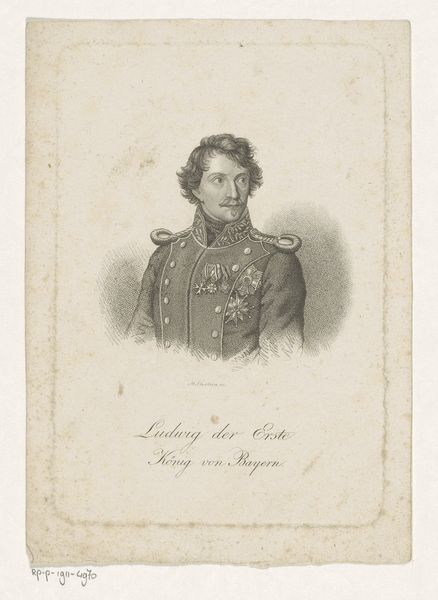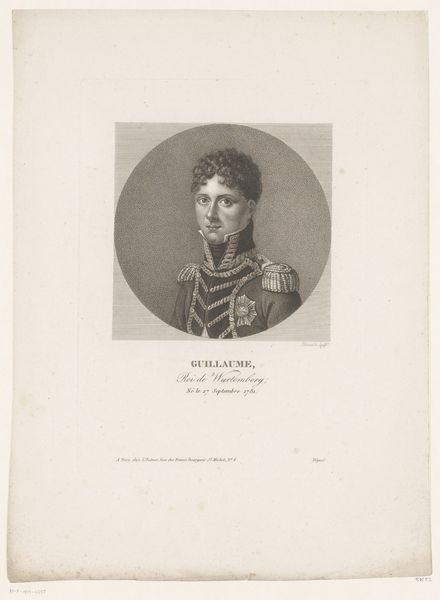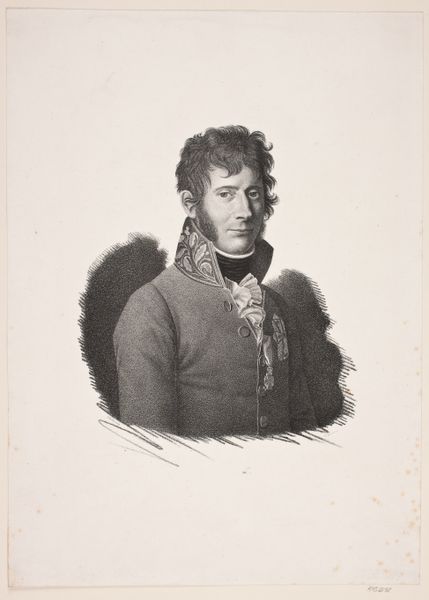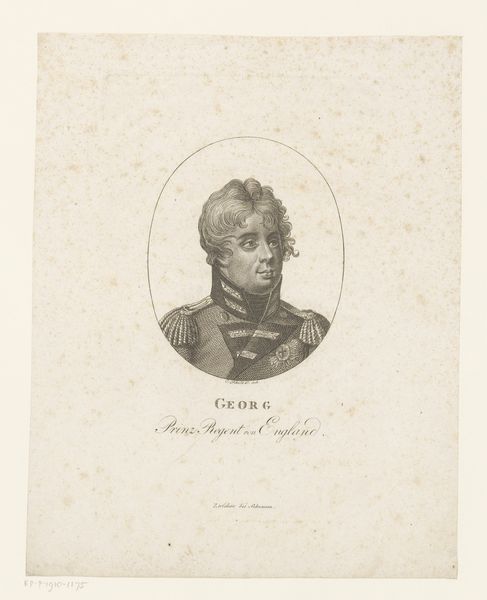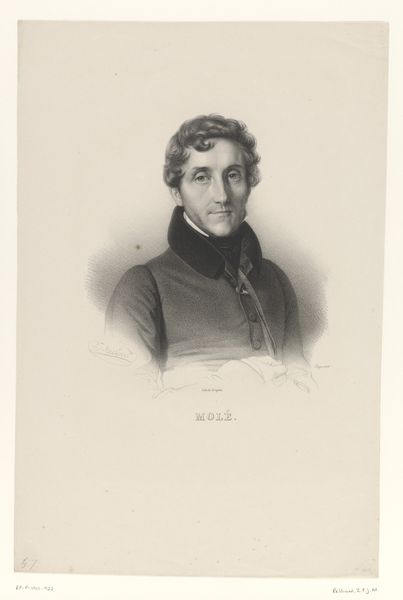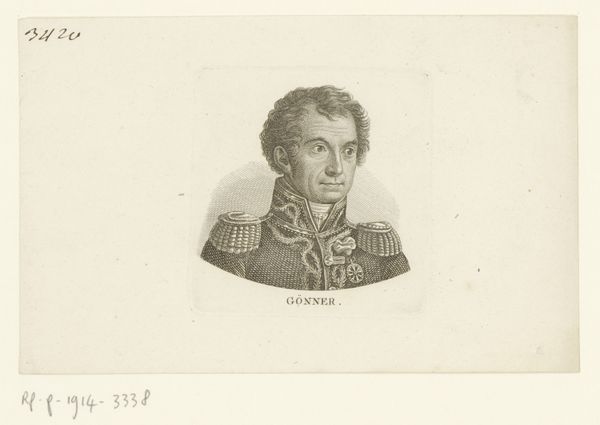
print, engraving
portrait
neoclacissism
pencil drawing
history-painting
engraving
Dimensions: height 122 mm, width 80 mm
Copyright: Rijks Museum: Open Domain
Editor: This is "Portret van Louis Charles Antoine Desaix," a print from sometime between 1807 and 1899 by Adrien Charles Danois. It's interesting to see a military figure depicted in a way that feels almost delicate, given the medium. How do you approach a piece like this? Curator: Immediately, I’m drawn to the process. This isn't oil paint depicting wealth; it's an engraving, a mass-reproducible medium. What does it mean to disseminate the image of a military leader through print? Who was the intended consumer, and what was the social context of its distribution? Was this meant to inspire patriotism, or serve some other purpose? Editor: That's fascinating! I hadn't considered the impact of the medium itself. It's a far cry from the heroic, large-scale paintings you often see of historical figures. Curator: Exactly. Think about the labor involved: the engraver's skill, the paper production, the printing process itself. Every step involved in creating and distributing this image reflects the social and economic conditions of the time. How might the availability and cost of materials have shaped its final appearance and accessibility? Editor: So you're saying the material reality of its production influences our interpretation just as much as the image itself. The details in his coat also feel important, with an artist investing that amount of time in creating something reproducible. Curator: Precisely. The details on the jacket imply hand labor replicated at scale, and how this shapes not only aesthetic but class relationships. Considering how images are manufactured, distributed, and consumed reveals underlying power structures. Editor: This has really changed how I look at this piece. I was initially focused on the individual portrait, but now I see it as part of a larger social and economic network. Curator: Understanding art as a product of material conditions, from the artist’s tools to the channels of distribution, can deepen our appreciation for its role in society. We are both investigating class, and its reproduction over time.
Comments
No comments
Be the first to comment and join the conversation on the ultimate creative platform.
